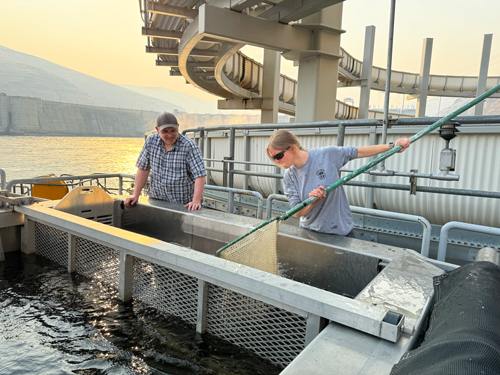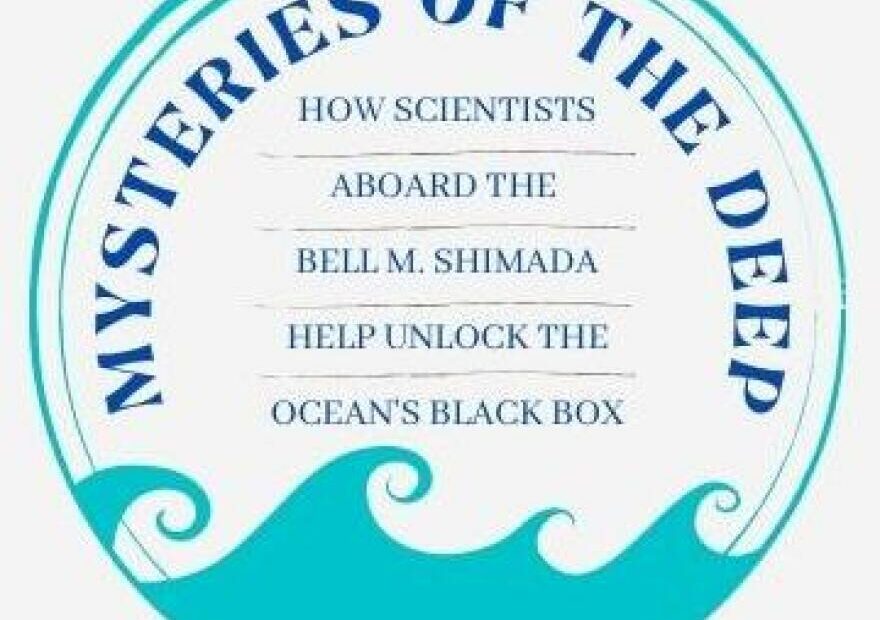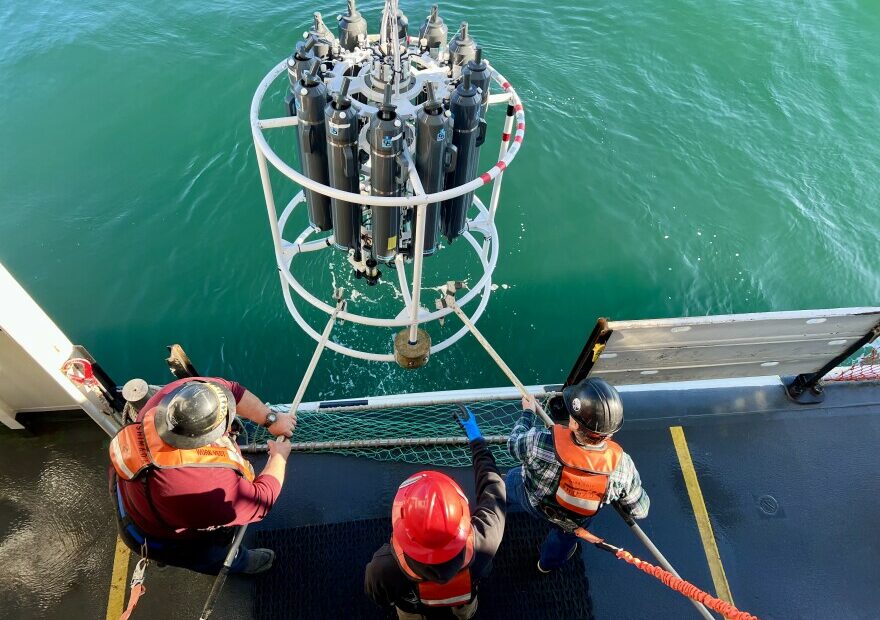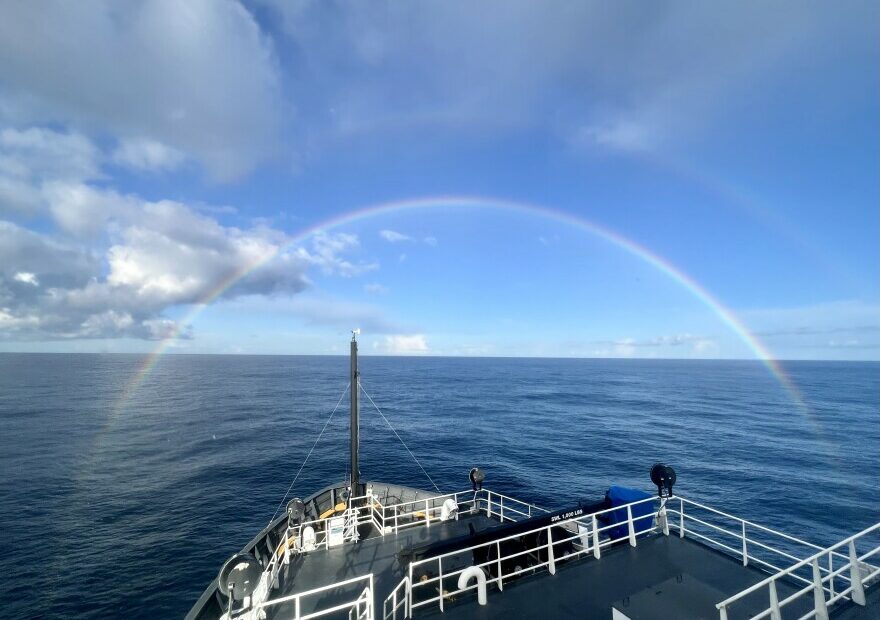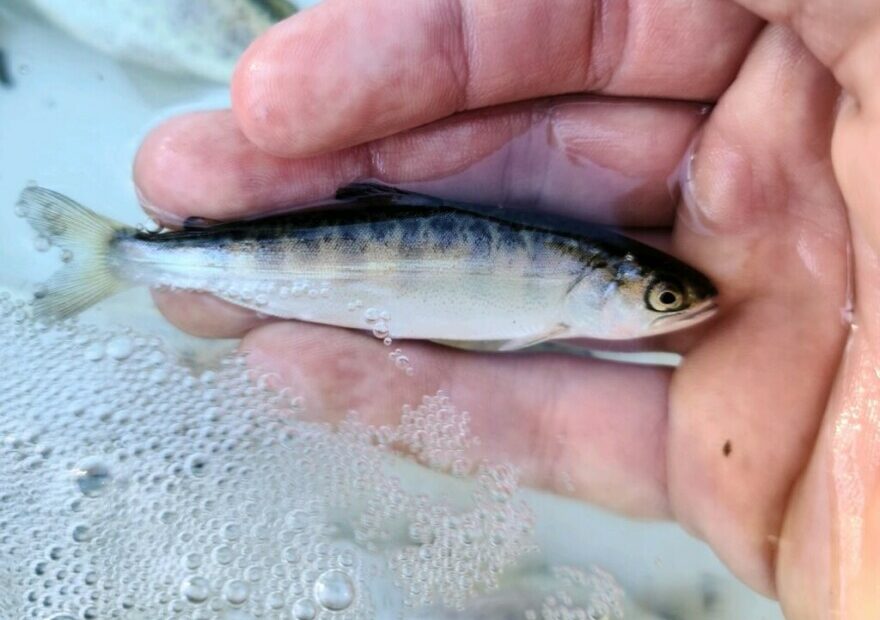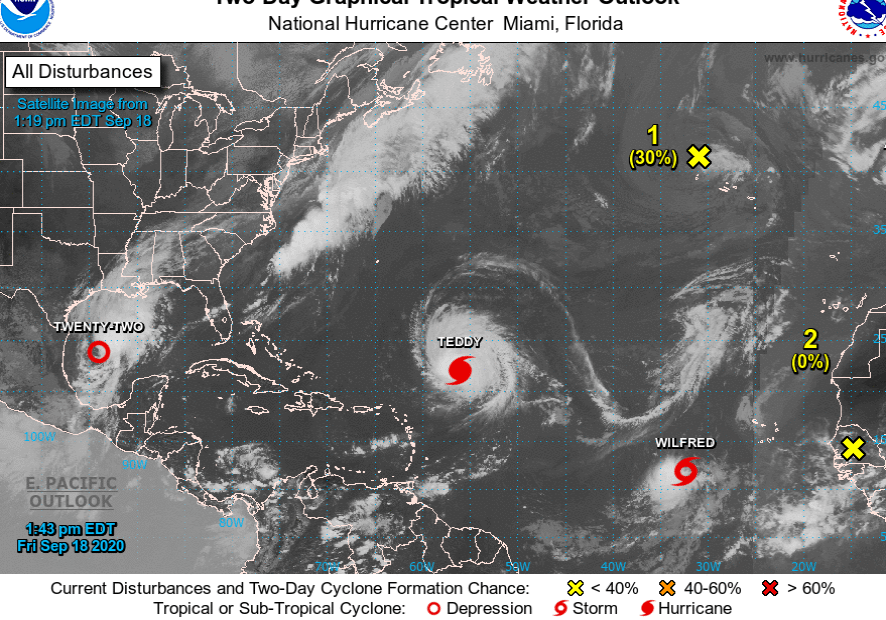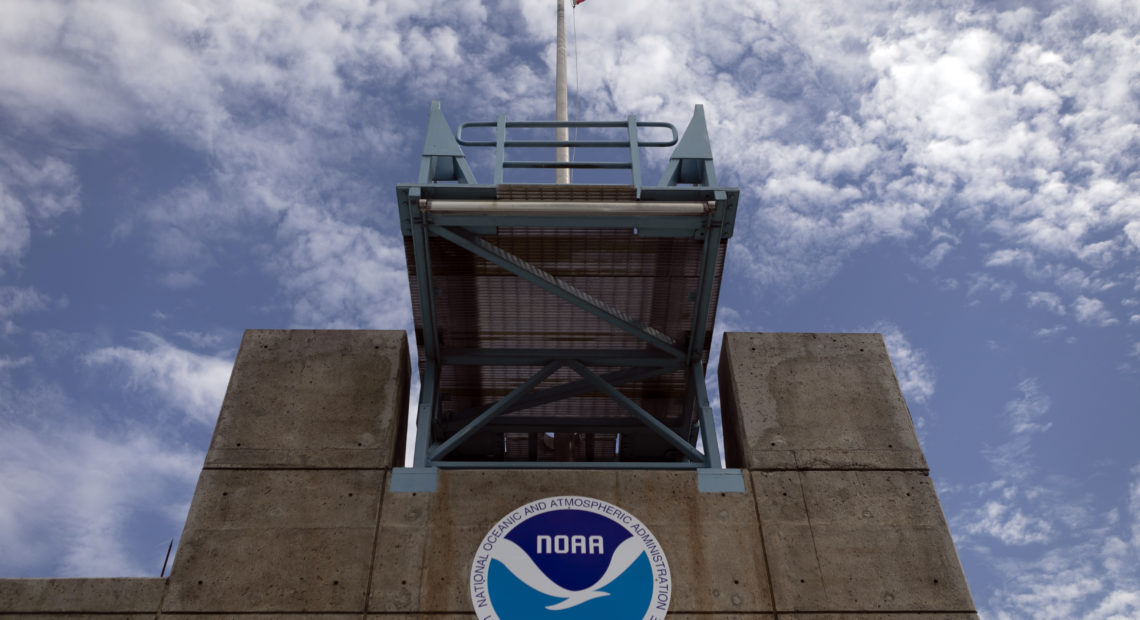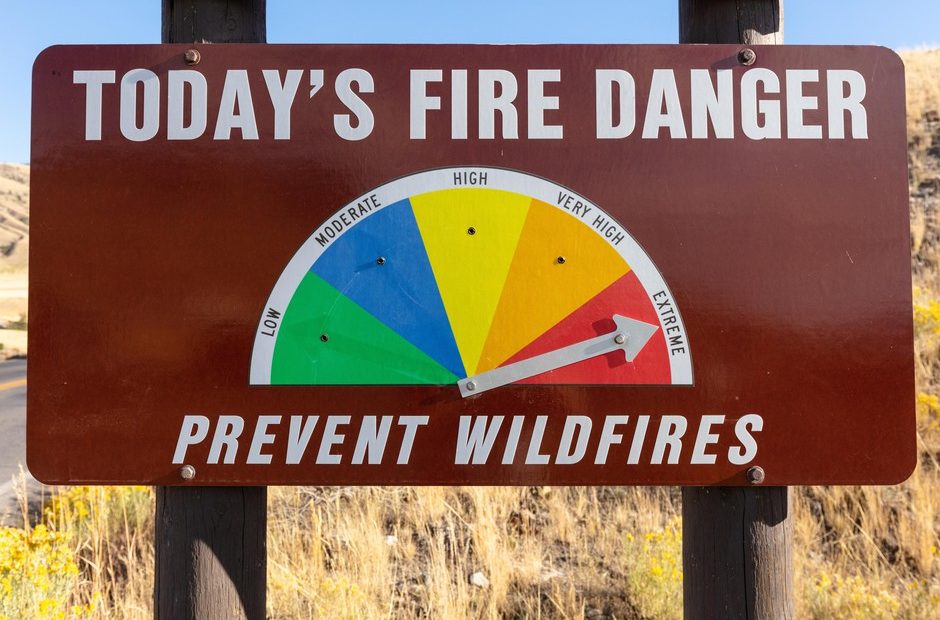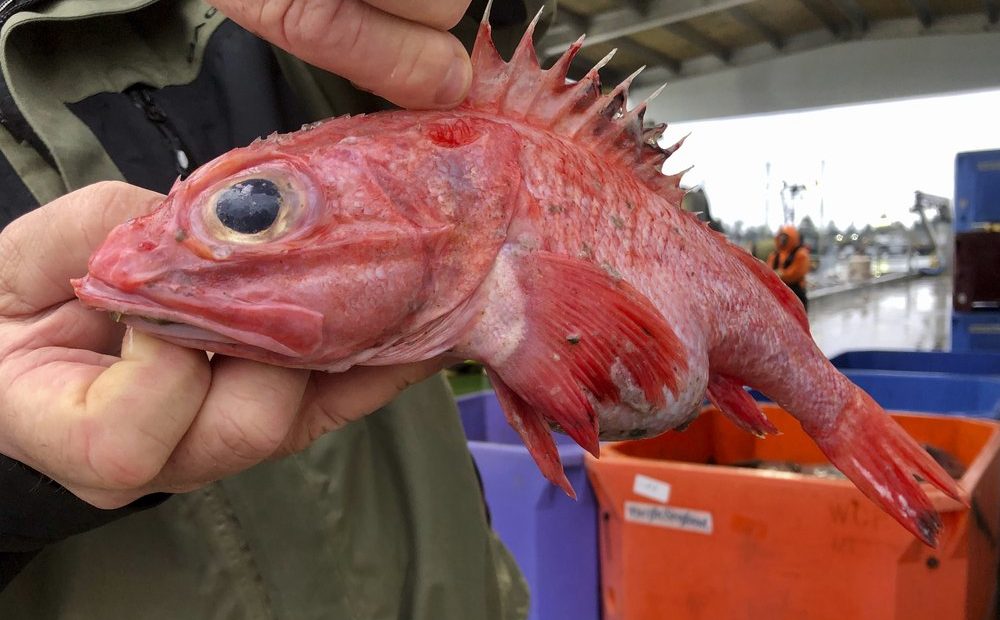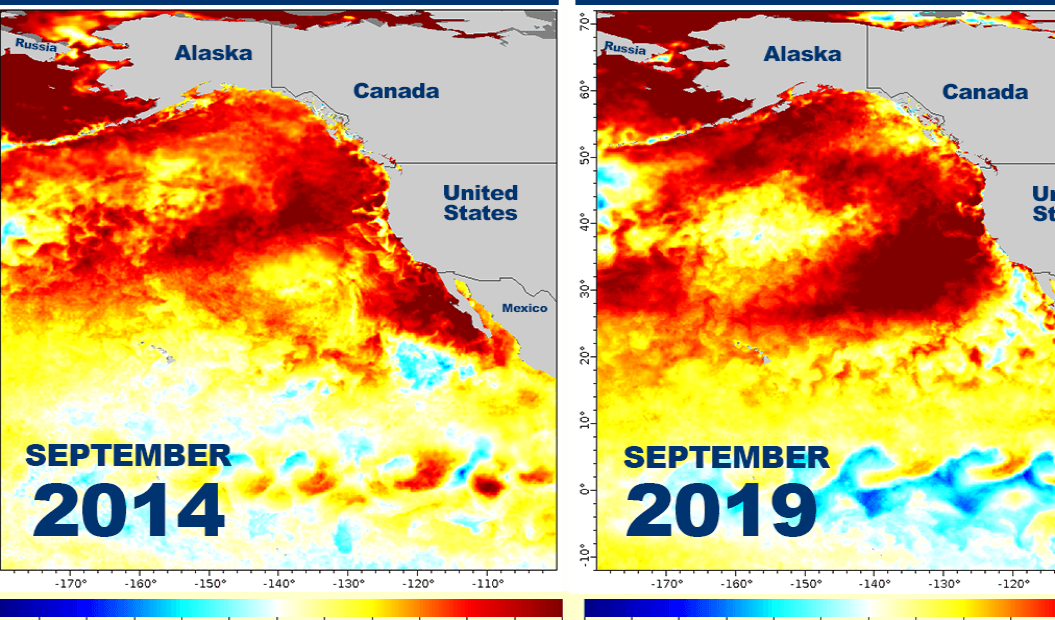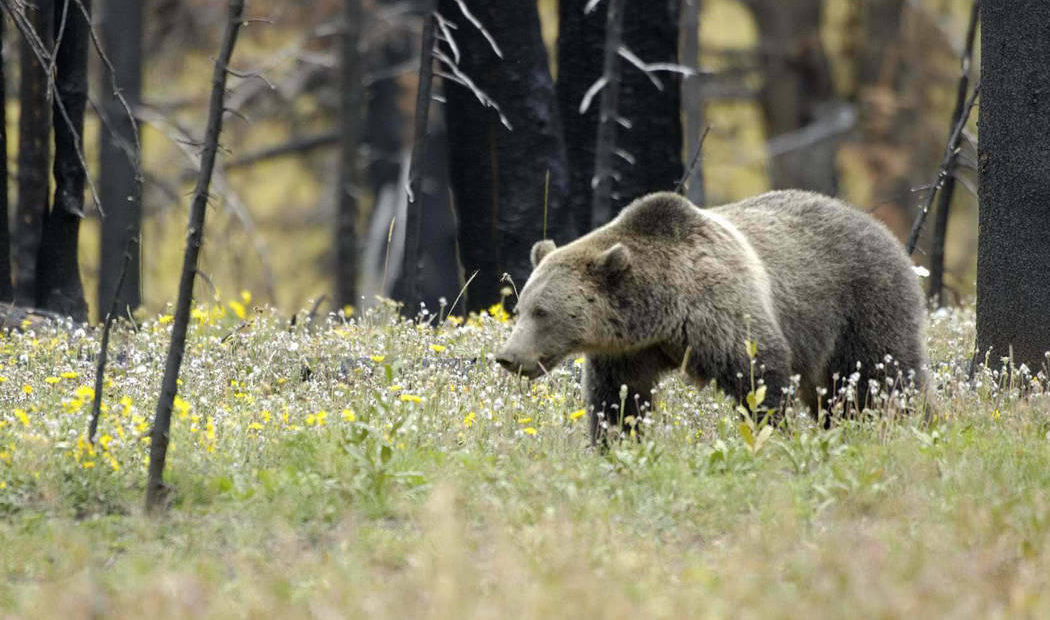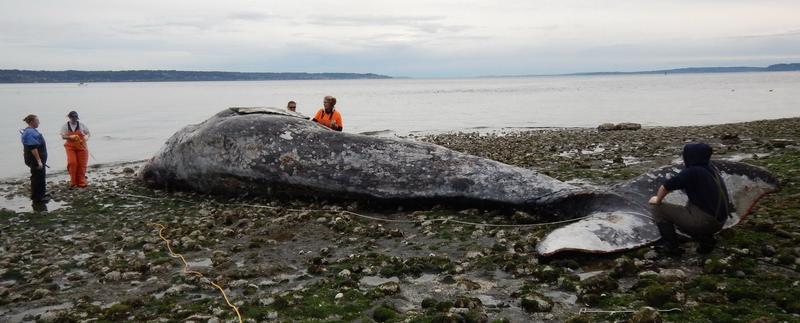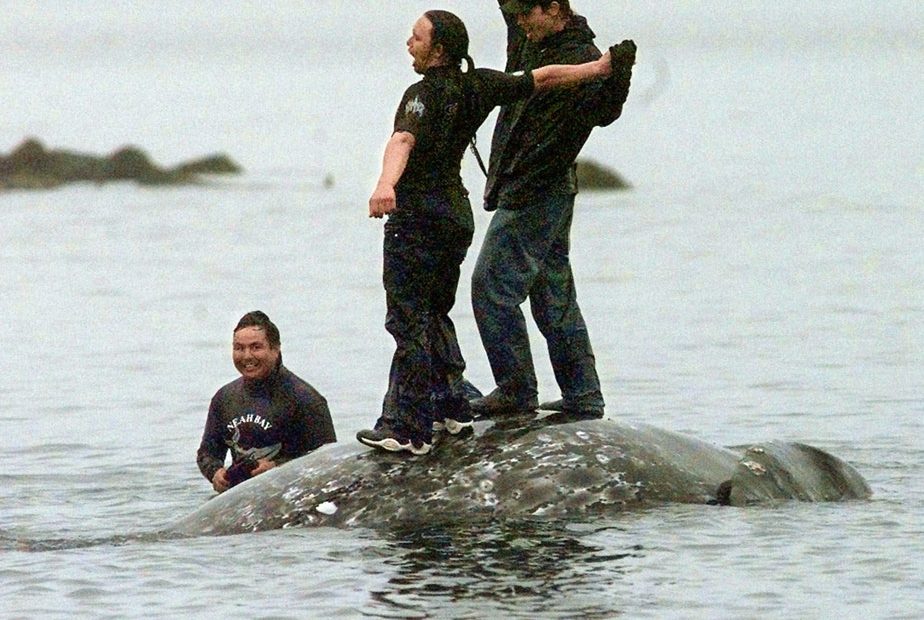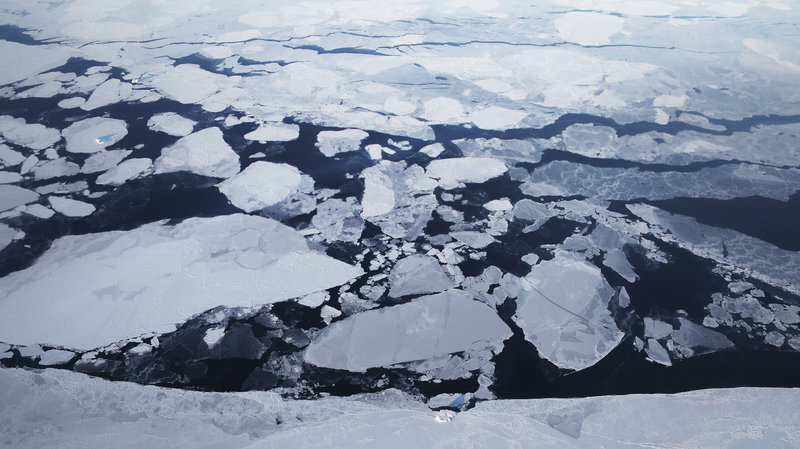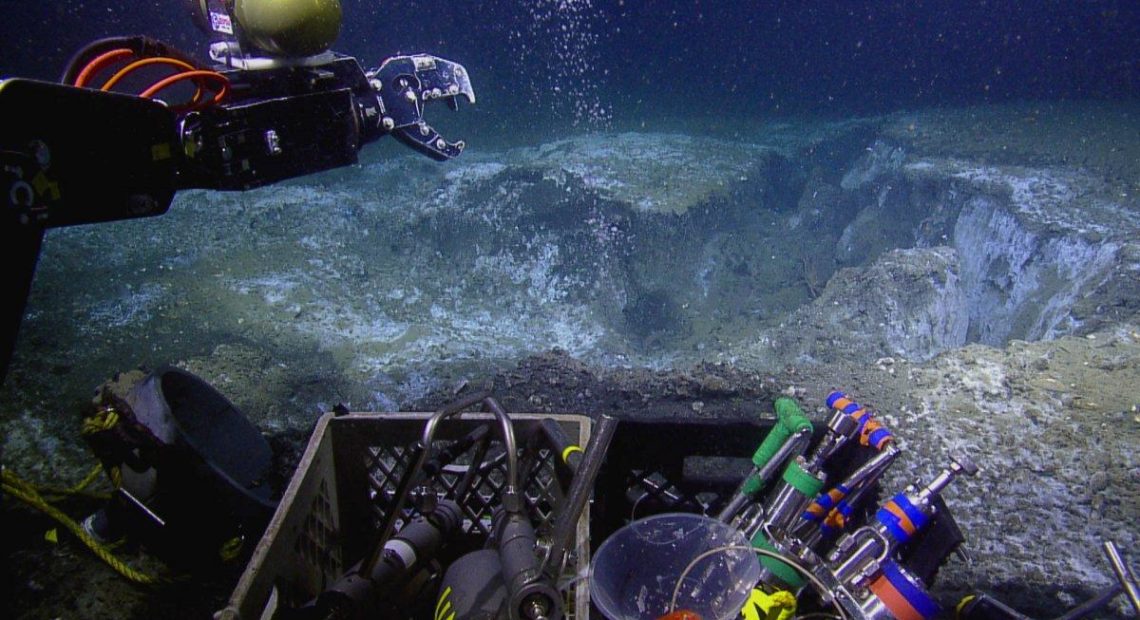Darren Ogden, a biologist with NOAA, watches as technician Riley Krieg nets sockeye salmon to put them into a tank on a truck. (Credit: Courtney Flatt / NWPB) Watch Listen […]Read More
Part 1: To Unravel Some Of The Ocean’s Mysteries, Scientists Head To Sea At least twice a year, scientists board the Bell M. Shimada, a National Oceanic and Atmospheric Administration […]Read More
The Bell M. Shimada is designed to gather scientific information. But the collaborative effort of the crew and officers makes scientific endeavors at sea possible.Read More
At least twice a year, a team of scientists on NOAA's research vessel Bell M. Shimada survey waters along the Washington and Oregon coast.Read More
Fish swimming out to sea over the past year have lucked into some of the best water temperatures and food abundance along the West Coast in the last 24 years, according to an analysis from the National Oceanic and Atmospheric Administration began monitoring ocean conditions.Read More
There's only been one other year – 2005 – that Greek names have been needed. The National Hurricane Center on Friday announced storms called Alpha and Beta have formed in the Atlantic.Read More
David Legates, a professor whose research has been supported by fossil fuel companies, has been hired for a top position at the federal agency that oversees weather and climate forecasting.Read More
July started off cool, which lowered wildfire risks in Washington and Oregon. But a new outlook shows excessive heat and a lack of precipitation have helped to dry out fuels in southern and central Oregon and central Washington. In those areas that have been dealing with drought, the land is ready to burn.Read More
After years of fear and uncertainty, bottom trawler fishermen — those who use nets to scoop up rockfish, bocaccio, sole, Pacific Ocean perch and other deep-dwelling fish — are making a comeback here, reinventing themselves as a sustainable industry less than two decades after authorities closed huge stretches of the Pacific Ocean because of the species’ depletion.Read More
It "was not based on science but on external factors including reputation and appearance, or simply put, political," the agency's acting chief scientist wrote. Read More
Scientists have detected a marine heat wave off the West Coast that they say is reminiscent of the massive stretch of warm water nicknamed “the Blob” in 2014-15.Read More
What is the cost to the economy when an animal is listed as an endangered species? The Trump administration could soon start to publicize that calculation, along with the cost and benefits of categorizing an animal that way, under new rules it finalized earlier this month.Read More
The peak stranding time for gray whales in the Pacific Northwest is normally April, May and June. But the federal agency NOAA Fisheries has already logged nine dead whales washed ashore in Washington and one in Oregon. That's on top of 21 strandings on California beaches since the beginning of the year.Read More
A proposal out Thursday by the National Oceanic and Atmospheric Administration would allow the Makah Tribe to hunt between 1-3 gray whales annually in their historic hunting range. The tribe last held a hunt 20 years ago.Read More
The Arctic has experienced the "most unprecedented transition in history" in terms of warming temperatures and melting ice, and those changes may be the cause of extreme weather around the globe, according to the National Oceanic and Atmospheric Administration's 2018 Arctic Report Card.Read More
Ocean researchers have found nearly 1,000 methane seep sites along the continental shelf of the Pacific Northwest. The bubble streams could be a sign of offshore energy potential, represent a greenhouse gas threat — or be neither of those things at all.Read More

